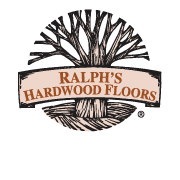Traditionally vinyl floors have been considered the best choice for rooms where moisture is common. That being said, while standard vinyl holds up well to water, it is prone to gouging and tearing, and it isn't the most comfortable floor to stand-on, especially if it is installed over concrete. In response to this, the industry created a new form of vinyl, known as luxury vinyl. Luxury vinyl flooring is sold in semi-rigid planks (LVP) or tiles (LVT) and is installed using the same click-lock interlocking edges that are found in laminate flooring. Although luxury vinyl was introduced in the 1970s, it was not until the 2000s that it really took off as a flooring material.
Standard Vinyl vs. Luxury Vinyl - What is the difference?
Appearance
Standard vinyl sheet flooring or tiles have most commonly aimed at resembling ceramic or stone tile, though there are many, many designs patterns and colors available—including those that look like wood. But because the wear layer is a smooth, solid surface, the simulated cracks between "planks" are usually not very convincing with standard vinyl flooring. This is the kind of floors you can imagine being in your grandmother's kitchen.
Luxury vinyl planks (LVP) are usually designed to simulate the look of wood, as is most laminate flooring, while luxury vinyl tiles (LVT) are usually designed to simulate stone or ceramic tiles. The newest forms of luxury vinyl are amazing and both look and feel like wood or stone. If you can imagine the color, it exists and hundreds of styles are available.
Water and Heat Resistance
All vinyl flooring is resistant to water since it is waterproof. Luxury vinyl has seams between tiles or planks and so it is possible for water (though exceeding rare when installed by a professional) to seep through, giving standard sheet vinyl a very narrow edge over luxury vinyl for total water resistance. Both tolerate normal heat, such as direct exposure to sunlight.
Care and Cleaning
This category is a draw and the real winner is the homeowner. Both standard vinyl and luxury vinyl are easy to clean and can be maintained with daily sweeping or vacuuming and a weekly damp mop using warm (not hot) water mixed with a mild soap. Unlike old resilient linoleum floors, modern vinyl doesn't require sealers or waxes.
Durability and Maintenance
Standard vinyl flooring is a fairly soft surface that can be susceptible to dents, scratches, and tears. Repairs to a damaged surface are hard to make convincing, and most people end up replacing or covering over the flooring once the wear becomes pronounced.
Luxury vinyl is made more durable by its thicker wear layer is higher quality vinyl. On the off chance a a plank does get damaged, it can be replaced rather than replacing the entire floor.
Lifespan
Standard vinyl flooring is expected to last about 10 years with higher quality brands lasting as long as 15 years. Luxury vinyl is more durable and generally advertised as lasting up to 25 years when well maintained.
Resale Value
Standard sheet vinyl flooring is usually seen as a bargain flooring material, and it does nothing to improve real estate value. Luxury vinyl planks or tiles will almost always carry more resale value than standard vinyl flooring.
Comfort and Sound
Standard Vinyl is a very thin material that can be quite hard and cold underfoot, especially when installed over concrete sub floors. Luxury Vinyl feels softer underfoot and has better sound-blocking properties than standard vinyl flooring. This is especially true of luxury vinyl with cork or foam underlay layers built into the product. Top-quality luxury vinyl is often superior to laminate flooring for comfort.
Take Away
Vinyl, in general, is a low-maintenance and durable material but when compared head-to-head, luxury vinyl is definitely the better product.
If you want to know more options on hardwood flooring or if you’re thinking about starting a flooring project, don’t hesitate to contact one of our design consultants or call 920-984-3383, 800-354-9902. We would be glad to assist you.















